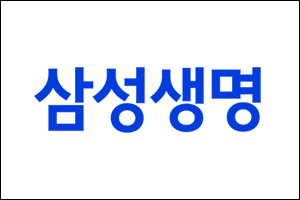![[ECM] SK On ∙ Lotte Chemical, Unstable PRS Contract… Concerns Over Increased Losses](https://cfnimage.commutil.kr/phpwas/restmb_allidxmake.php?pp=002&idx=3&simg=2024111412001606260141825007d12411124362.jpg&nmt=18)
According to the investment banking (IB) industry on the 13th, SK On secured a total of 1.5 trillion won in funds, including a paid-in capital increase of 1 trillion won last month and an additional 500 billion won recently.
Specifically, it is a PRS (pricing return swap) method. PRS is a structure in which a company transfers stocks it owns to investors who are counterparties and compensates for losses when the value falls. On the other hand, when asset value increases, investors transfer the increased value of the purchased stocks to the company (preserving the difference).
In simple terms, instead of selling shares, the company raises funds based on them. Investors give up profits but limit losses, and it is a type of derivative contract in which they receive fees or dividends.
Meanwhile, Lotte Chemical also signed a PRS contract worth 662.6 billion won by utilizing a 40% stake in its US corporation (Lotte Chemical Louisiana LLC).
SK On · Lotte Chemical, Reasons for PRS Contracts…Limitations in Funding
PRS contracts are made for various purposes. Among them, while large-scale funds are required, there are many cases where debt financing is difficult.SK On succeeded in turning a profit in the third quarter of this year, three years after its independent launch from SK Innovation in 2021. However, there is a high possibility of deficit again due to the one-time profit base effect. SK On has raised a total of 3 trillion won in funds from financial investors (FIs) since the spin-off. If SK On fails to reach an appropriate level of corporate value by 2026, its parent company SK Innovation will have to repurchase the stake held by FIs. Alternatively, FIs may exercise a drag-along right to sell SK On shares held by SK Innovation.
SK On can only escape the worst-case scenario if its growth leads to increased value and a successful initial public offering (IPO). In this process, since investment expansion is inevitable, funds are needed.
SK On's credit rating is A+, so if a large amount of funds are raised through debt, the burden of financing costs will increase. The corporate bond credit rating guaranteed by its parent company, SK Innovation, is AA0, but it is not enough to reduce the excessive debt burden. If SK On fails to IPO, etc., SK Innovation could also be hit.
In the current situation, it is most ideal for SK On to raise capital in the form of equity. However, due to the limitations of being an unlisted company, it is difficult to evaluate its fair value. However, from SK On’s perspective, it is believed that SK On's current valuation is undervalued due to its confidence in the growth of electric vehicles.
On the other hand, from the perspective of investors, the PRS contract reflects some doubts about SK On’s long-term financial stability and performance improvement.
Avoiding the PRS aftermath... Improving Performance and financial stability are urgently needed
The reason why SK Innovation, the parent company of SK ON, and Lotte Chemical cannot aggressively engage in market procurement is related to the group's credit. Both companies are affiliates that have a significant impact on the credit ratings of their respective groups. They chose PRS as a procurement route with the least accounting burden.However, the PRS arrangement is not without its share of investor negativity, as noted above. This could have a negative impact on the group as a whole if it is not supported by an industry conditions and improving performance.
An investment bank (IB) official said, "Both SK On and Lotte Chemical are raising funds to improve their financial structure," and "Dramatic restructuring of low-profitability sectors will be inevitable in the process." He added, "PRS is not a bad choice in a situation where capital procurement is difficult, but it could face greater difficulties if performance worsens and financial burden increases."
Lee Sungkyu (lsk0603@fntimes.com)



























![서울 중구청장, 여야 모두 출마 러시…격전 예고 [6·3지방선거]](https://cfnimage.commutil.kr/phpwas/restmb_setimgmake.php?pp=006&w=69&h=45&m=5&simg=2026020909055800601b372994c951245313551.jpg&nmt=18)



![12개월 최고 연 3.20%…NH저축은행 'NH특판정기예금' [이주의 저축은행 예금금리-2월 2주]](https://cfnimage.commutil.kr/phpwas/restmb_setimgmake.php?pp=006&w=69&h=45&m=5&simg=20260207205859051226a663fbf34175192139202.jpg&nmt=18)
![‘롤러코스터' 삼전닉스…‘방어주 매력' 따져보니 [정답은 TSR]](https://cfnimage.commutil.kr/phpwas/restmb_setimgmake.php?pp=006&w=69&h=45&m=5&simg=2026020723524103702dd55077bc221924192196.jpg&nmt=18)















![[그래픽 뉴스] 워킹맘이 바꾼 금융생활](https://cfnimage.commutil.kr/phpwas/restmb_setimgmake.php?pp=006&w=298&h=298&m=1&simg=202602021638156443de68fcbb3512411124362_0.jpg&nmt=18)
![[그래픽 뉴스] 매파·비둘기부터 올빼미·오리까지, 통화정책 성향 읽는 법](https://cfnimage.commutil.kr/phpwas/restmb_setimgmake.php?pp=006&w=298&h=298&m=1&simg=202601281456119025de68fcbb3512411124362_0.jpg&nmt=18)
![[그래픽 뉴스] 하이퍼 인플레이션, 왜 월급이 종잇조각이 될까?](https://cfnimage.commutil.kr/phpwas/restmb_setimgmake.php?pp=006&w=298&h=298&m=1&simg=202601141153149784de68fcbb3512411124362_0.jpg&nmt=18)
![[그래픽 뉴스] 주식·채권·코인까지 다 오른다, 에브리싱 랠리란 무엇일까?](https://cfnimage.commutil.kr/phpwas/restmb_setimgmake.php?pp=006&w=298&h=298&m=1&simg=202601071630263763de68fcbb3512411124362_0.jpg&nmt=18)
![[그래픽 뉴스] “이거 모르고 지나치면 손해입니다… 2025 연말정산 핵심 정리”](https://cfnimage.commutil.kr/phpwas/restmb_setimgmake.php?pp=006&w=298&h=298&m=1&simg=202601061649137526de68fcbb3512411124362_0.jpg&nmt=18)
![[신간] 고수의 M&A 바이블](https://cfnimage.commutil.kr/phpwas/restmb_setimgmake.php?pp=006&w=81&h=123&m=5&simg=2025091008414900330f8caa4a5ce12411124362.jpg&nmt=18)
![[신간] 리빌딩 코리아 - 피크 코리아 극복을 위한 생산성 주도 성장 전략](https://cfnimage.commutil.kr/phpwas/restmb_setimgmake.php?pp=006&w=81&h=123&m=5&simg=2025032814555807705f8caa4a5ce12411124362.jpg&nmt=18)
![[서평] 추세 매매의 대가들...추세추종 투자전략의 대가 14인 인터뷰](https://cfnimage.commutil.kr/phpwas/restmb_setimgmake.php?pp=006&w=81&h=123&m=5&simg=2023102410444004986c1c16452b0175114235199.jpg&nmt=18)


![[신간] 이게 화낼 일인가?](https://cfnimage.commutil.kr/phpwas/restmb_setimgmake.php?pp=006&w=81&h=123&m=5&simg=2026010610254801367f8caa4a5ce12411124362.jpg&nmt=18)

![[AD] 현대차, 글로벌 안전평가 최고등급 달성 기념 EV 특별 프로모션](https://cfnimage.commutil.kr/phpwas/restmb_setimgmake.php?pp=006&w=89&h=45&m=1&simg=20260106160647050337492587736121125197123.jpg&nmt=18)
![[AD] 현대차 ‘모베드’, CES 2026 로보틱스 부문 최고혁신상 수상](https://cfnimage.commutil.kr/phpwas/restmb_setimgmake.php?pp=006&w=89&h=45&m=1&simg=20260105103413003717492587736121125197123.jpg&nmt=18)
![[AD] 기아 ‘PV5’, 최대 적재중량 1회 충전 693km 주행 기네스 신기록](https://cfnimage.commutil.kr/phpwas/restmb_setimgmake.php?pp=006&w=89&h=45&m=1&simg=20251105115215067287492587736121125197123.jpg&nmt=18)
![[카드뉴스] KT&G, 제조 부문 명장 선발, 기술 리더 중심 본원적 경쟁력 강화](https://cfnimage.commutil.kr/phpwas/restmb_setimgmake.php?pp=006&w=89&h=45&m=1&simg=202509241142445913de68fcbb3512411124362_0.png&nmt=18)
![[AD]‘황금연휴에 즐기세요’ 기아, ‘미리 추석 페스타’ 이벤트 실시](https://cfnimage.commutil.kr/phpwas/restmb_setimgmake.php?pp=006&w=89&h=45&m=1&simg=20250903093618029117492587736121166140186.jpg&nmt=18)



